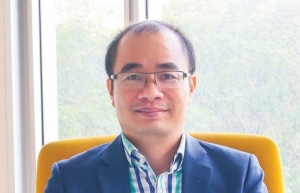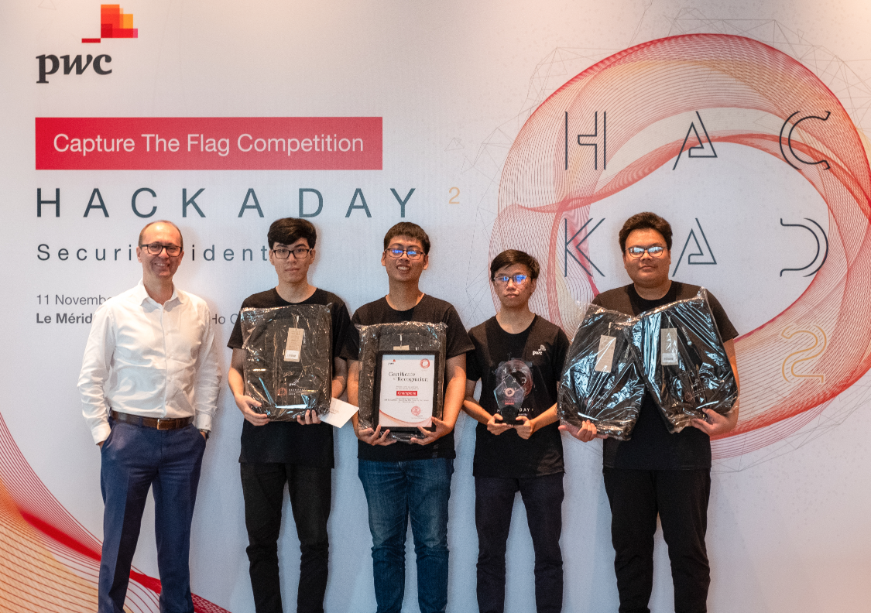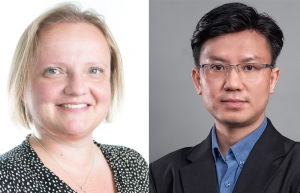Asia-Pacific CEOs enter 2025 with optimism and caution
 |
Themed “28th CEO Global Annual CEO Survey - Asia Pacific: Reinvention in motion,” the survey polled responses of 1,520 CEOs in the region.
The survey highlighted that 55 per cent of CEOs expect the global economy to improve in the next year, up from 40 per cent in 2024. 34 per cent are very and extremely confident about their company’s short-term revenue growth (up 3 per cent vs. 2024), rising to 54 per cent for a three-year outlook (up 17 per cent vs. 2024)
Only 45 per cent believe their companies will last less than a decade if they continue on the same path, an improvement from 63 per cent in 2024
Sri Nair, PwC Asia-Pacific chairman said, "As we navigate the evolving landscape of 2025, it's encouraging to see the increasing optimism among Asia-Pacific CEOs. However, this must be balanced with a proactive approach to sustain momentum amid persistent economic challenges."
"CEOs must adopt a systems-thinking approach, looking beyond their organisations to understand customers' ever-changing needs and foster collaborations across industry boundaries. The path forward demands agility, innovation and bold actions,” he said.
The report further reveals some Asia-Pacific companies are moving rapidly to capture the growth and value-creation potential inherent in the defining forces of our era. 59 per cent report that they have taken at least one significant reinvention action in the last five years. They’re investing in GenAI, addressing the opportunities and threats posed by climate change, and reinventing their operations and business models to create value in new ways.
Among the 82 per cent who have adopted GenAI in the last 12 months, 37 per cent report increased revenue, 40 per cent note higher profitability, and 58 per cent observe improved employee efficiency due to GenAI adoption.
A significant 87 per cent of CEOs in the region have initiated climate-friendly investments in the last five years. Of these, 39 per cent report increased revenue, while 34 per cent face cost pressures.
63 per cent indicate they have tied their personal incentive compensation to sustainability metrics, surpassing the global average of 56 per cent.
Yet many others are moving slowly and a large majority of companies lack agility. On average, only 7 per cent of revenue over the past five years stems from fundamentally new businesses.
Dynamic resource reallocation is a prerequisite for reinvention. However, 64 per cent reallocate less than 20 per cent of financial resources, and 70 per cent reallocate less than 20 per cent of human resources.
One of the ways to reinvent is to look beyond company’s walls and across industry boundaries. However, 72 per cent have not undertaken a major acquisition (over 10 per cent of assets) in the last three years.
CEOs confidence is tempered by caution. Macroeconomic volatility and inflation remain top of mind. Additionally, one in four CEOs identifies talent shortage and technological disruption as key threats to their businesses. Reflecting this cautious outlook, 44 per cent of Asia-Pacific CEOs do not plan to spend any capital expenditure for international operations in the coming year.
The great convergence
The report also identifies a growing trend of industry convergence. 35 per cent of Asia-Pacific CEOs are venturing into new industries, with technology, retail, and health services leading the charge as the most attractive arenas for new entrants.
Three-plus decades of digitalisation have started to breakdown formerly impermeable sector boundaries. PwC's strong belief is that the interactions among AI, climate change and other megatrends will further accelerate this reconfiguration, creating new domains of growth that cut across sectors. Navigating this is a job for the top team, backed by strong board support.
Mai Viet Hung Tran, general director of PwC Vietnam said, “In 2025, Vietnam is poised for significant growth and innovation, fuelled by a thriving middle class, supportive government policies, and its position as a leading hub for international investment in Southeast Asia. Vietnamese businesses have a unique opportunity to innovate and generate new values by taking decisive actions to lead in this dynamic environment.
"For CEOs in Vietnam, success lies in balancing both external and internal strategies. This includes embracing cross-industry partnerships, harnessing advanced technologies, and prioritising sustainability. By focusing on these areas, they can unlock new opportunities, drive business growth, and contribute to the advancement of Vietnam's economy," he said.
 | Digital solutions are crucial for Vietnam’s tax future Technology is transforming tax management in Vietnam, enhancing transparency and compliance. The adoption of advanced data analytics and digital tools is essential for efficient tax administration and fraud prevention. As businesses navigate these changes, it is crucial to stay informed and adapt to new regulatory landscapes effectively. |
 | PwC Vietnam holds Hack A Day 2024 to nurture IT and cybersecurity talents PwC Vietnam, in association with other territories in Asia-Pacific, including Macau, Singapore, Indonesia and Malaysia, successfully organised Hack A Day 2024 with the theme “Securing Identity” on November 11. |
 | Proposed changes to interest deductibility rules may be welcomed by taxpayers Decree No.132/2020/ND-CP sets out the rules on transfer pricing in Vietnam and has been in effect since 2020. Businesses often face challenges applying the rules in Decree 132 around interest deductibility, particularly with regard to interest charged by credit institutions which are deemed to be related parties for transfer pricing purposes. The Ministry of Finance (MoF) has proposed amendments to address these issues. |
What the stars mean:
★ Poor ★ ★ Promising ★★★ Good ★★★★ Very good ★★★★★ Exceptional
 Tag:
Tag:
Related Contents
Latest News
More News
- Vietnamese consumers express concern about climate change (October 11, 2025 | 14:06)
- ESG seen as key to Vietnam’s business credibility and capital attraction (September 29, 2025 | 18:38)
- From compliance to strategy: ESG criteria gaining ground (September 29, 2025 | 15:47)
- Vietnamese firms step up ESG game (September 23, 2025 | 15:26)
- Vietnam tax and legal changes set to shape foreign investment landscape (September 16, 2025 | 13:46)
- Vietnamese businesses navigate US tariffs (June 25, 2025 | 12:14)
- The impact of cloud, AI, and data on financial services (April 14, 2025 | 11:20)
- Vietnam 2025 M&A outlook: trends, deals, and opportunities (March 21, 2025 | 08:54)
- Vietnam's M&A landscape mirrors global trends (February 18, 2025 | 17:13)
- Proposed changes to interest deductibility rules may be welcomed by taxpayers (January 22, 2025 | 09:23)




















 Mobile Version
Mobile Version